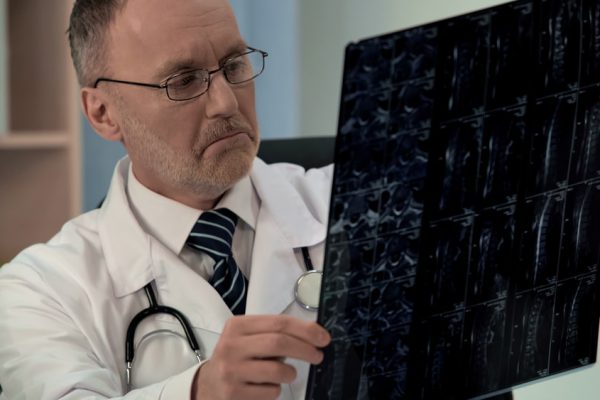In which cases should a spine MRI examination be performed?
The most common use is in cases of back pain, neck pain, disc herniation, spinal tumors, structural changes, and abnormal blood vessels.
When the cause of pain is suspected to be a spinal tumor or infection or if the patient is suffering from severe pain, the cause of which was not found in the other examinations.
When there is suspicion of a birth defect in the spinal cord.
Clarification of neurological diseases.
In order to plan surgeries or assess their results.
When there is suspicion of an infarction in one of the arteries that feed the spine (“spinal cord infarction”).
Planning surgeries for spinal cord pain relief.
How should one prepare for a spine MRI?
Fasting – It is important to check for the requirements of the institution where the examination will be performed, prior to the examination. Some institutions instruct to fast a few hours prior to the examination, while others do not instruct to do so.
Clothing – Do not wear clothes with metal parts, and any metal jewelry found on the body should be removed, along with hair pins and keys.
Metals in the body – The medical staff should be informed of metals found in the body, in cases such as a pacemaker, stent that was implanted during catheterization, artificial joint, surgical clip, insulin pump, shrapnel or cochlear implant. Most of these implants do not contain magnetic metals, and therefore will not prevent the performance of the examination, but the medical team must be informed of each of the implants listed above prior to the examination.
Claustrophobia – Patients who are afraid of a confined spaces may use tranquillizers about an hour prior to the examination, in consultation with a doctor.
Contrast agents – Occasionally, this examination uses the contrast agent gadolinium. It is a metal contrast agent with magnetic properties that enables a more efficient demonstration of blood vessels and increases the quality of the scan. In contrast to iodine-based contrast agents, gadolinium hardly causes any allergic reactions or side effects. In cases of advanced kidney failure, the use of a contrast agent should be avoided.
Pregnancy – Women who may be pregnant are asked to notify their doctor or examination technician.





